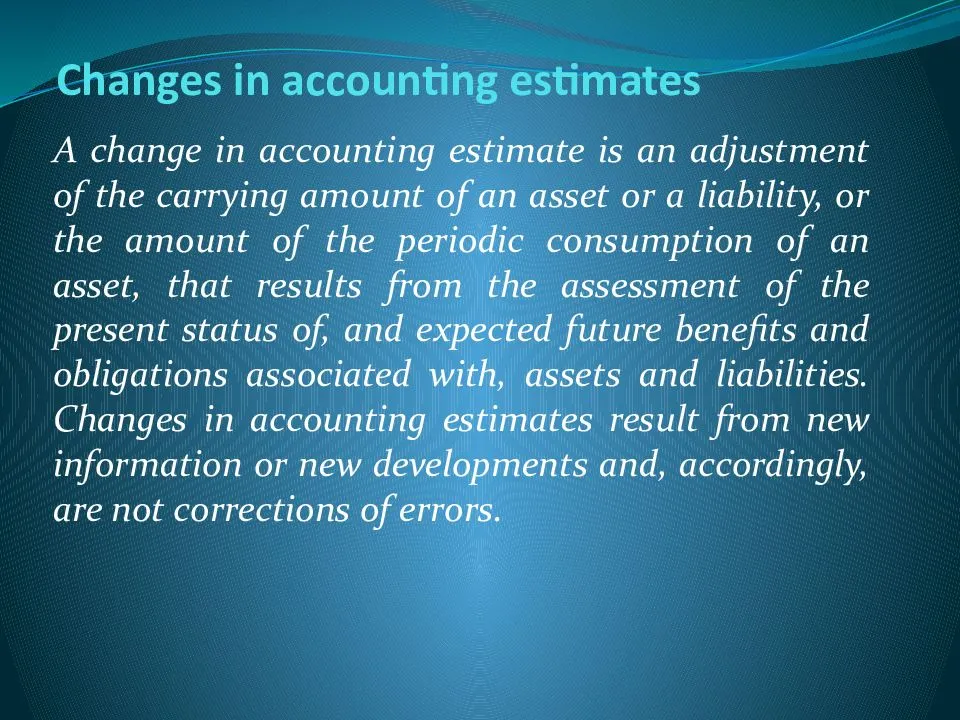
For example, an AI system can analyze past financial statements and market trends to predict future revenues and expenses, identify potential risks and opportunities, and recommend strategies to optimize financial performance. In audit, AI enables auditors to analyze large data sets and swiftly identify anomalies and patterns. This means auditors can shift away from sampling in favor of reviewing all of a client’s transactions in real time. This results quickbooks online 2020 in improved outcomes as auditors can better identify risky transactions and deliver higher-quality audits to clients. Besides AI-enhanced coding in invoice processing, AI-based data analysis and business intelligence can help your company achieve better expense management and reduce the risk of human errors. Businesses, public accounting firms, nonprofits, and governmental entities, including U.S. government departments like GSA, are using accounting AI.
Practice Management for a more connected accounting firm
This article will cover the most important topics about AI in accounting—from its current and future role in the financial space and your workflows, to key AI trends in 2023 and the tools that will help you meet your goals. Recent developments in artificial intelligence (AI), including the emergence of Generative AI, are leading businesses to evaluate AI’s potential impact to their business technology strategy. We understand that the swift adoption of AI technologies can pose both exceptional opportunities and significant risks. By fusing the power of AI with the brilliance of our people, our suite of AI services can advise today’s financial leaders on how to navigate, react, and respond to both. Just as in the case of Klarity, AI plays a role in most of those big rounds as startups are looking to apply the technology to help automate or expedite some of the tedious tasks in accounting. Before that, accounting workflow automation tools developer FloQast, locked up a $100 million Series E financing led by Iconiq Growth, and audit automation provider DataSnipper raised $100 million led by Index Ventures.

Improving Auditing Processes
Save time and effort by reducing long research sessions into simple tasks with AI-assisted research on Checkpoint Edge. Sign up for industry-leading insights, updates, and all things AI @ Thomson Reuters. With over 1,700 on-demand and live streaming courses to choose from, you can build skills in tax, audit, tech, personal development, and so much more. And with our Prime Subscription, you’ll get the courses you need and want to take in one convenient package.
Spotlighting Women in Advisory Practice: “We needed to focus on what people wanted,” says Erin Heath, CPA
Bo Davis, co-founder/CEO of MarginEdge, a restaurant software platform providing automated invoice processing with F&B cost analytics. DARTbot is just one of the ways that we are infusing Generative AI applications and capabilities across our organization to help our professionals become more efficient and productive. Deloitte is also rolling out purpose-specific LLMs and chatbots to support specialized teams across its businesses.


We’ve built hundreds of AI tools for every aspect of your accounting system. He expects that to change, however, as the firm standardizes its data ingestion process and can better stipulate what it needs to gather useful data. AI technology, on the other hand, offers a data-driven approach that makes it possible for firms to understand https://www.adprun.net/negative-confirmation/ client processes from transaction initiation right through to the general ledger. Planful empowers finance teams to maximize their corporate performance by automating, accelerating, and aligning all financial processes. By leveraging the power of Planful, enterprises can gain valuable insights and optimize their financial performance.
- While it isn’t going anywhere anytime soon, the exponential growth in AI capabilities from new startups in software has driven existing programs, including Excel, to add AI components to remain competitive.
- It’s a seismic shift that is redefining the realm of numbers and finance.
- This shift allows them to offer deeper insights and more strategic advice, turning accountants into business advisors.
- AI tools for accounting provide indisputable benefits, from improving financial insights to automating time-consuming tasks.
Will AI replace accountants?
Similarly to Legal AI, Accounting AI threatens to cannibalize billable hours with greater efficiency. Therefore, what buyer personas and what business units AI companies pitch matter immensely. Tax departments, for example, typically structure their engagements by hourly rates. Docyt also allows you to keep all critical financial information and documents in one secure place and create separate vaults for different projects or businesses.
However, firms must prioritize ethical considerations to ensure they protect themselves and their clients. Generative AI models that have these data issues become less effective at solving more complex or judgment-based problems. For example, some AI models have had “hallucinations” where information is created without a source. Accountants must be proficient in data wrangling to mitigate these risks and ensure data relevancy, accuracy, and integrity. Learn how experienced professionals, digital methodology, and advanced technology come together to deliver greater value through our award-winning audit approach.
Forward-thinking financial leaders are shifting the tides by using AI to analyze enormous quantities of financial data at speed and scale, providing real-time insights into a business’ financial health. Because accounting AI tools are built to boost efficiency, minimize the risk of human error, and enhance overall productivity. With such a vast array of applications and customizable capabilities, Generative AI can serve as a powerful tool for finance leaders to address key agenda items and realize strategic priorities and objectives for finance and controllership. When looking at the emerging AI tools and their various generative applications, the opportunities they present to finance and accounting are tremendous. Use the tax knowledge base to find any information you need for your business and harness the power of natural language processing to leverage external data.
Further, to protect sensitive financial information from unauthorized access and cyber threats, consider implementing advanced encryption techniques, security protocols, and invest in cybersecurity training. Because AI systems may inadvertently replicate content from external sources, firms should also consider implementing plagiarism detection tools to ensure that financial reports and analyses are original and comply with ethical standards. With two master’s degrees spanning both areas, one in finance and a recent one in data science with a specialization in artificial intelligence, I’m more inclined to embrace this brave new frontier than lament the AI-pocalypse.
In fact, accounting jobs are expected to grow by 4% in the next ten years, which is even more than the average job growth. They found that 59% of 500 C-suite executives are already using AI for taxes and finance. Also, 40% of them want to invest more than $10 million in it in the next 12 months. It can make hard tasks easier, manage money better, and help accountants. These are just a few of the HR functions accounting firms must provide to stay competitive in the talent game.
Divvy offers lines of credit up to $15 million and tools to help control budgets and manage spending. Here are the 10 best AI tools for accounting and finance to get you started. If you’re not using AI tools for accounting tasks, you’re making things more complicated than they need to be. With the potential of data difficulties in mind, firms should consider the value of some clients and clarify their requirements for AI-powered audits.
AI-powered accounting software often requires access to sensitive financial data, making it a potential target for cyber-attacks and data breaches. Ensuring the security and privacy of financial data is a critical challenge that needs to be addressed. As technology continues to advance at a rapid pace, it’s no surprise that the field of accounting is no exception. Accountants and auditors looking to stay ahead of the curve need to learn more about the power of AI and how it’s transforming the accounting industry. Let’s take a look at what accountants need to know about AI—including the benefits to accounting jobs, AI-powered tools to consider, and accounting sector best practices. Going forward, AI will enable accounting professionals to further the shift from being reactive to more proactive in serving clients.
But integrating AI into your day-to-day operations can improve workflows, automate administrative and financial processes, increase productivity, and save you time and energy. This can seriously impact the success of your business, allowing you to shift focus https://www.quick-bookkeeping.net/ to more high-value advisory services and strategy. With automation software, automated invoice processing workflows, including supplier onboarding and accounts payable and expense management, can be achieved electronically using AI technologies and RPA.
